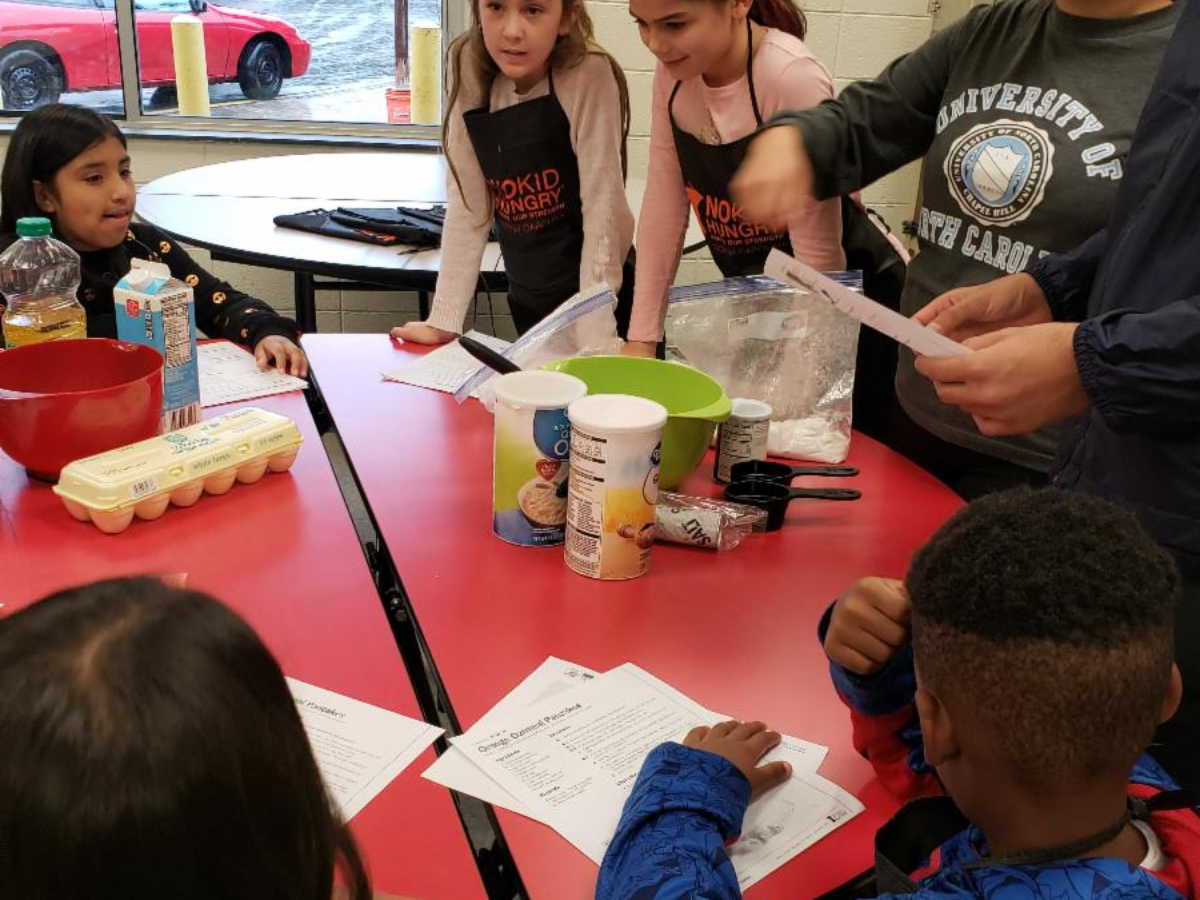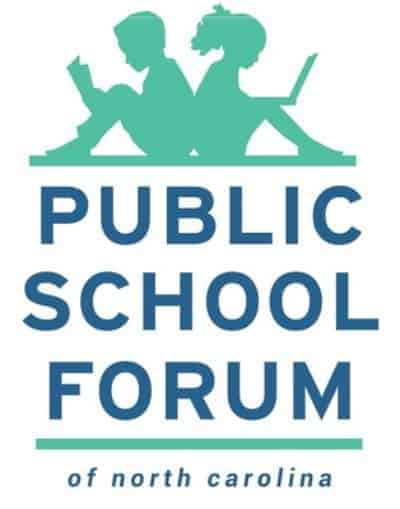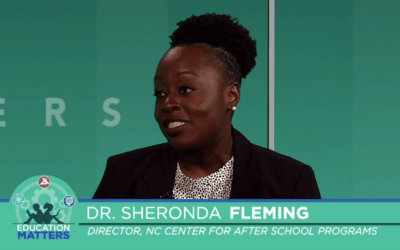
Sheronda Fleming wants people to know about after-school programs.
Not just for the benefit of students and parents, but also for people with a passion for helping kids who maybe have never thought of pursuing a career working with youth outside of school.
“We had other aspirations. But we may have volunteered in some capacity working with children, or were in college working at the Y[MCA], or there was something that we did by happenstance, and in that experience we fell in love with working with children,” she said of herself and her fellow after-school workers.
That is a common story for people who work in the before-school, after-school, or summer learning field, according to Fleming, the director of the N.C. Center for Afterschool Programs at the Public School Forum of North Carolina.
To promote awareness about the field, from Oct. 5 to 28, the Center has been releasing videos as part of The Journey Series. Each day, a video features someone in the after-school field talking about their experience and the route they took to the profession.
Sign up for the EdWeekly, a Friday roundup of the most important education news of the week.
One of those people is Amy Franks. She started out as a teacher, but realized in her second year of teaching that the after-school field might be for her. She was a sixth grade language arts teacher in Durham in the 1990s when a principal shared about an opportunity to volunteer for a new teacher-led after-school program.
“I enthusiastically raised my hand and said, ‘I’ll do it,'” she said.
She spent the rest of that semester doing both her classroom work and her after-school work. She realized that the after-school space was where she really wanted to be.
“Growing up I didn’t know it was a job,” Franks said. “I didn’t know it was a thing you could aspire to do.”
But through the after-school program in Durham, she realized it was possible to build a different kind of relationship with students.
“Magically, I became someone different to them after that last bell of the day,” she said, adding later: “They were more willing to talk to me. More willing to open up to me.”
She never looked back.
Now, Franks works with Book Harvest, a child literacy nonprofit in Durham. The organization has so far provided more than 1.5 million books to children. Her experience working with children outside of schools, Franks said, has made her think differently about what education can be.
Certainly, schools have things that have to be achieved. But what if it could somehow mix those requirements with the freedom and more open relationships developed during after-school programs?
“If we could meld that with satisfying those things that feeds their dreams, and feed their curiosity, and their need to explore … then that would certainly be magic,” she said. “I don’t think it’s impossible. I think that the right minds at the table could make that happen.”
Another person featured in The Journey Series is Emily Neff, who graduated from Appalachian State University with a child development degree. She was looking for jobs and came across a job at W.A.M.Y Community Action, which says on its website that it is “… breaking the cycle of poverty by partnering with families and communities to provide the disadvantaged the support and tools they need to become self-sufficient.” The job was as a director of youth development for their after-school programs. That was 2014 — and she’s been there ever since.
“I never even thought about the after-school field or summer programming as an option. I just knew that I wanted to work with kids and their families,” Neff said.
Her work takes place in Watauga County, and she loves how, even though her county is small, there are a diverse group of students spread across it that she gets to nurture.
The Journey Series will wrap up on Oct. 28, which is this year’s Lights On Afterschool Day, described as: “A national advocacy day where after-school programs across the nation host events to celebrate their programs and increase awareness about the importance of after school.”
Fleming said that this field is a “work of heart,” and though it’s not something that many people have traditionally aspired to do, she wants to change that so that it is a career sought out by future generations.
When schools shut down during the start of the COVID-19 pandemic, Fleming said after-school programs never stopped. And as the pandemic lingered, workers in this field have persevered. So she also wanted to send this message to all those working in the space.
“It can sometimes be a thankless job, and I personally just want to thank everyone in this field across the state for their commitment to the field,” she said. “We’re still in it and it is sometimes hard. But, heart work is hard work.”
Recommended reading



